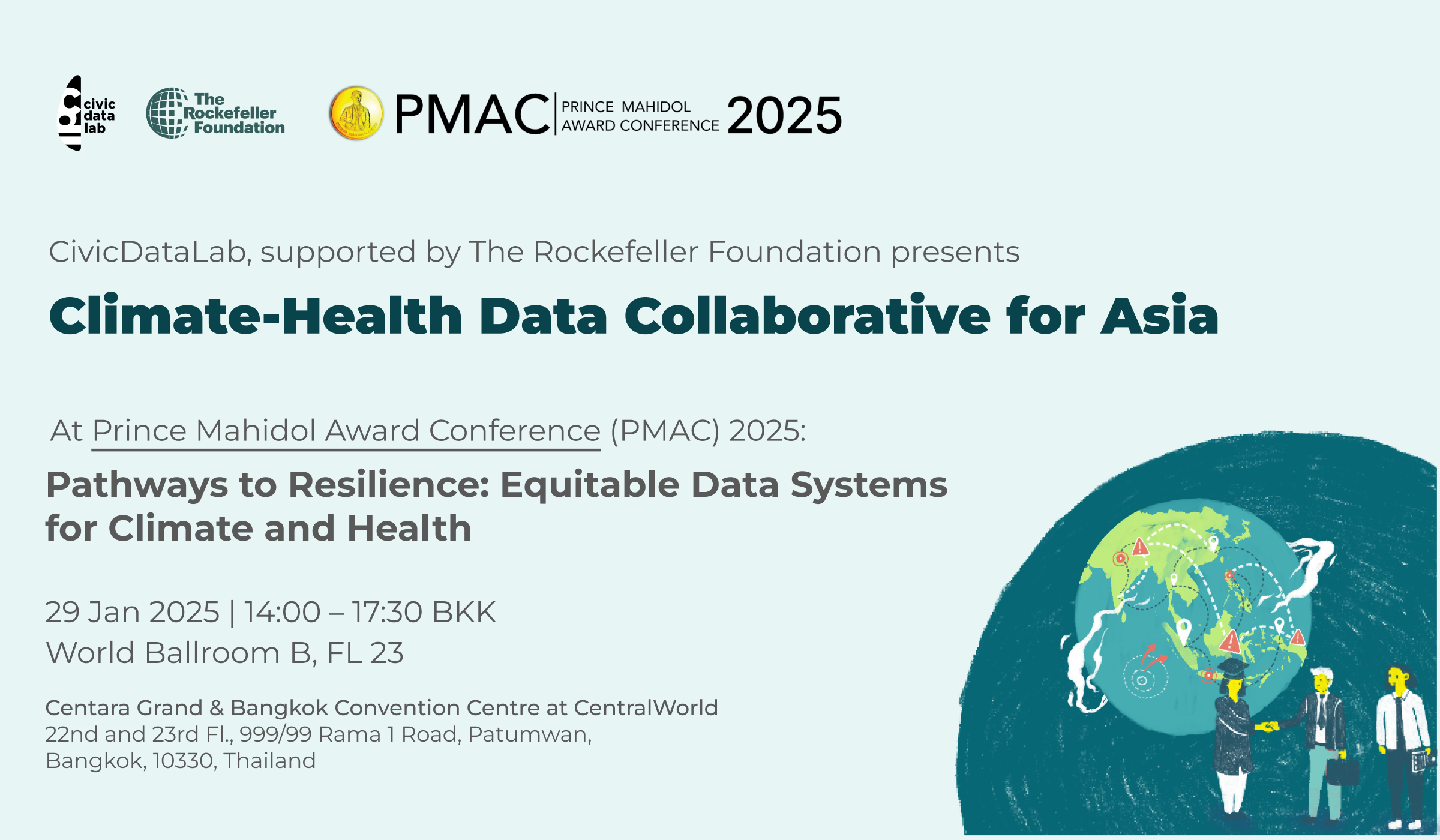Side Meetings
SMB124
Climate Health Data Collaborative for Asia
29
Jan
- CivicDataLab
- The Rockefeller Foundation

Rapid technological advancements, especially in Artificial Intelligence (AI), have emerged as
crucial tools for tackling global challenges, including health impacts driven by climate
change. While AI and data innovations hold immense potential for achieving Sustainable Development
Goals (SDGs) by 2030, they also come with risks like inequitable access, misinformation, and privacy
concerns.
As climate change accelerates, its impacts on human health are becoming more apparent. On one hand
the shifting weather patterns and rising temperatures are amplifying the spread of infectious diseases
and pandemics, and on the other side the increasing pressure on biodiversity and natural systems are
increasing the risk of zoonotic diseases. Asia, with its diverse ecosystems and large section of vulnerable
populations, is particularly susceptible. Over the past three decades, Asian countries have experienced an
average of six natural disasters annually. In 2022 alone, extreme weather events led to over 7,500 deaths,
affected 64 million people, and caused economic damages of US$57 billion. LDCs and developing
countries in Asia were already carrying the world’s highest disease burden till 2000, from diarrhoea and
malnutrition, which are sensitive to climate change. It is estimated that mortality risk from vector-borne
diseases is almost 300 times greater in developing countries as compared with developed countries.
The poorest populations remain disproportionately at risk. Rapid technological advancements, especially
in Artificial Intelligence (AI), have emerged as crucial tools for tackling global challenges, including health
impacts driven by climate change.
The proposed side meeting will focus on Asia's role in fostering regional collaboration for resilience and
climate adaptation. The event will explore how stakeholders across Asia can help strengthen climate
resilience by improving data sharing, collaborating on use-cases and applying AI modelling techniques.
The session, "Climate Health Data Collaborative for Asia," aligns with the sub theme 1, ‘Technological
Innovations to Strengthen Health Systems and Achieve Universal Health Coverage’ by focusing on the
transformative potential of AI and data innovations to address climate-related health challenges. It
emphasises how technological advancements can enhance health systems and resilience, particularly in
vulnerable populations across Asia.
The session has the following broad objectives:
1. To explore how AI and data-sharing can improve climate resilience in health systems across Asia.
2. To foster regional collaboration and share use cases for applying AI modelling to climate-health challenges.
3. To address equity concerns and ensure inclusive access to data-driven health innovations in vulnerable communities.

